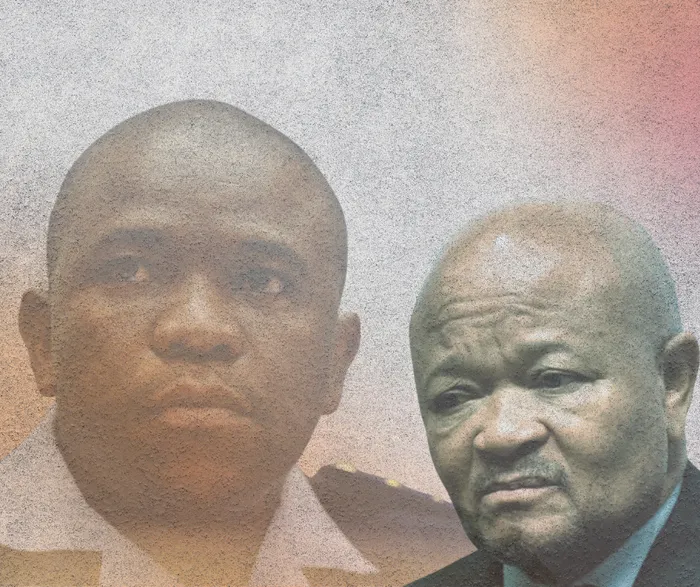Labour law expert questions constitutionality of Police Minister's paid leave

Police Minister Senzo Mchunu accepts his special leave by President Cyril Ramaphosa.
Image: IOL Graphics
Labour law expert, Advocate Bo Dlamini, says President Cyril Ramaphosa’s decision to place the embattled Police Minister Senzo Mchunu on paid leave may be unconstitutional and wasteful.
This comes as taxpayers are set to bear a heavier financial burden following the announcement that Mchunu, who has been placed on special leave, will continue to earn his full annual salary of R2.69 million.
This is in light of a presidential commission of inquiry announced by Ramaphosa, which could take between three to six months to conclude.
Despite being off duty, Mchunu will continue to earn his full annual salary of R2.69 million, which translates to approximately R224 166.67 per month.
During the inquiry period, Professor Firoz Cachalia from Wits University has been appointed to act as the interim Minister of Police.
While Cachalia’s exact remuneration package has not been officially confirmed, it is expected that he will receive a ministerial-level salary during his acting term.
Dlamini said since ministers are not appointed under the Public Service Act, it is unclear where the president based his decision to give Mchunu a leave of absence, saying it was even worse that the leave may take up to a year, which is unusual for ministers and it can constitute a wasteful expenditure.
He further stated that although ministers’ appointments are not regulated by labour laws, the president, in a supervisor-subordinate relationship, could have suspended the minister instead of granting him a leave.
“Ramaphosa was supposed to suspend Mr Mchunu and appoint an independent tribunal to investigate the two violations of the Constitution within three months and make a report with recommendations,” said Dlamini.
He said Mchunu may have violated Section 207 of the Constitution, which deals with roles of the National Commissioners and Provincial Commissioners in controlling and managing the SAPS, adding that this clause clearly forbids Mchunu from disbanding the political task team unit which could have been done by the National Police Commissioner, Lieutenant-General Fannie Masemola.
Dlamini further stated that there is another piece of prima facie evidence that Mchunu lied in Parliament by stating that he didn't know Brown Mogotsi, but later on admitted knowing only as a "comrade".
Dlamini said another minister should have been appointed to act in Mchunu’s place to protect taxpayers' money instead of appointing a new acting minister who will enjoy added benefits while Mchunu enjoys the same perks sitting at home.
With the Police Ministry already bloated with two deputy ministers and costing taxpayers millions of rand in salaries and ministerial perks, there has been a public outcry over the president’s decision to place Mchunu on a long paid leave and appointing acting Minister outside the Cabinet.
This means taxpayers will foot the bill for four political heads of one department.
Opposition parties also questioned the president’s decision to appoint commissions instead of utilising the existing crime fighting state institutions such as the Special Investigations Unit.
Addressing the nation on Sunday, the president defended his decision to appoint a non-Cabinet member to act by quoting Section 91(3)(c) of the Constitution, which allows the president to appoint not more than two ministers outside the National Assembly.
However, the same Section is silent on appointing acting minister outside the National Assembly. Deputy ministers could not also be appointed to act since they are not part of the Cabinet.
Cape Times
Related Topics: